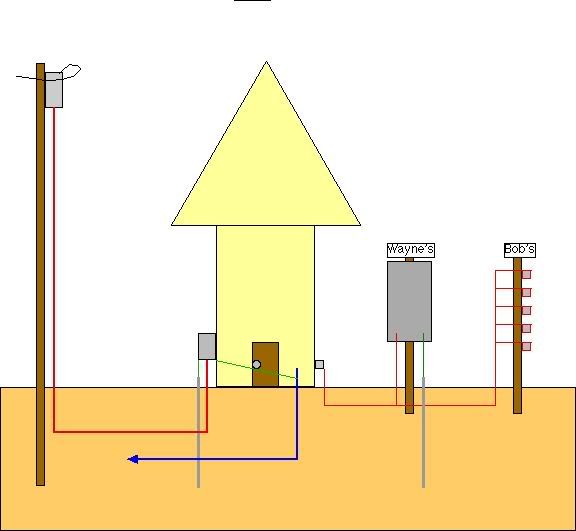- Location
- Windsor, CO NEC: 2023
- Occupation
- Hospital Master Electrician
Re: ground rod for remote panel at swimming pool
A tip of the hat to Charlie, I've brough this up before and it hasn't really settled in yet.
It seems to me that all the fault current in a primary-secondary fault that wasn't faulting line to line, would be faulting to the POCO neutral, to complete a circuit back to it's source.
What would the neutral to the house be doing in this scenario? There isn't a path back to the source except through the grounding electrodes. If there were an open neutral, then those grounding electrodes would be lost to the transformer, so it wouldn't be able to use them anyway, right?
My head's starting to ache.
A tip of the hat to Charlie, I've brough this up before and it hasn't really settled in yet.
It seems to me that all the fault current in a primary-secondary fault that wasn't faulting line to line, would be faulting to the POCO neutral, to complete a circuit back to it's source.
What would the neutral to the house be doing in this scenario? There isn't a path back to the source except through the grounding electrodes. If there were an open neutral, then those grounding electrodes would be lost to the transformer, so it wouldn't be able to use them anyway, right?
My head's starting to ache.

